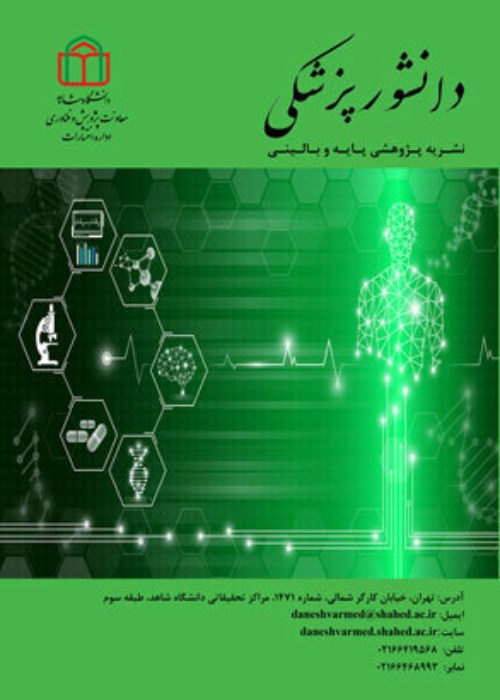Investigation of HLA-DQB1*3 allele in patients with Alopecia Areata
Author(s):
Abstract:
Background And Objective
Alopecia Areata (AA) is a multifactorial disease characterized by hair loss especially from the scalp affecting approximately 5.3 million people. Since major histocompatibility complex (HLA) region is considered to be associated with AA susceptibility, the effect of HLA-DQB1*3 allele frequency was investigated in the present study in AA patients and their respective controls.Materials And Methods
This study consisted of 30 patients with AA (13 females and 17 males, with a mean age of 26.3 ±2.28 years) and 15 healthy controls (5 females and 10 males, with a mean age of 30.1 ±1.5). DNA was extracted from blood samples using DNG plus method and PCR-SSP was used to detect HLA-HLA-DQB1*3. Furthermore, association of this HLA allele with some baseline clinical and demographical features was assessed.Results
The frequency of the HLA-DQB1*3 allele was not significantly higher in patients (23.3%) as compared to the controls (26.7%). We found no association with family history, stress, phobia, and onset of the disease in patients with AA )p > 0.05(.Conclusion
Our data do not show a correlation between the HLA-DQB1*3 allele and occurrence of AA in population. Keywords:
Language:
Persian
Published:
Daneshvar Medicine, Volume:24 Issue: 129, 2017
Pages:
57 to 64
magiran.com/p1717232
دانلود و مطالعه متن این مقاله با یکی از روشهای زیر امکان پذیر است:
اشتراک شخصی
با عضویت و پرداخت آنلاین حق اشتراک یکساله به مبلغ 1,390,000ريال میتوانید 70 عنوان مطلب دانلود کنید!
اشتراک سازمانی
به کتابخانه دانشگاه یا محل کار خود پیشنهاد کنید تا اشتراک سازمانی این پایگاه را برای دسترسی نامحدود همه کاربران به متن مطالب تهیه نمایند!
توجه!
- حق عضویت دریافتی صرف حمایت از نشریات عضو و نگهداری، تکمیل و توسعه مگیران میشود.
- پرداخت حق اشتراک و دانلود مقالات اجازه بازنشر آن در سایر رسانههای چاپی و دیجیتال را به کاربر نمیدهد.
In order to view content subscription is required
Personal subscription
Subscribe magiran.com for 70 € euros via PayPal and download 70 articles during a year.
Organization subscription
Please contact us to subscribe your university or library for unlimited access!


